WhatsApp Business API vs. Traditional Sales Channels - Which Is Better?
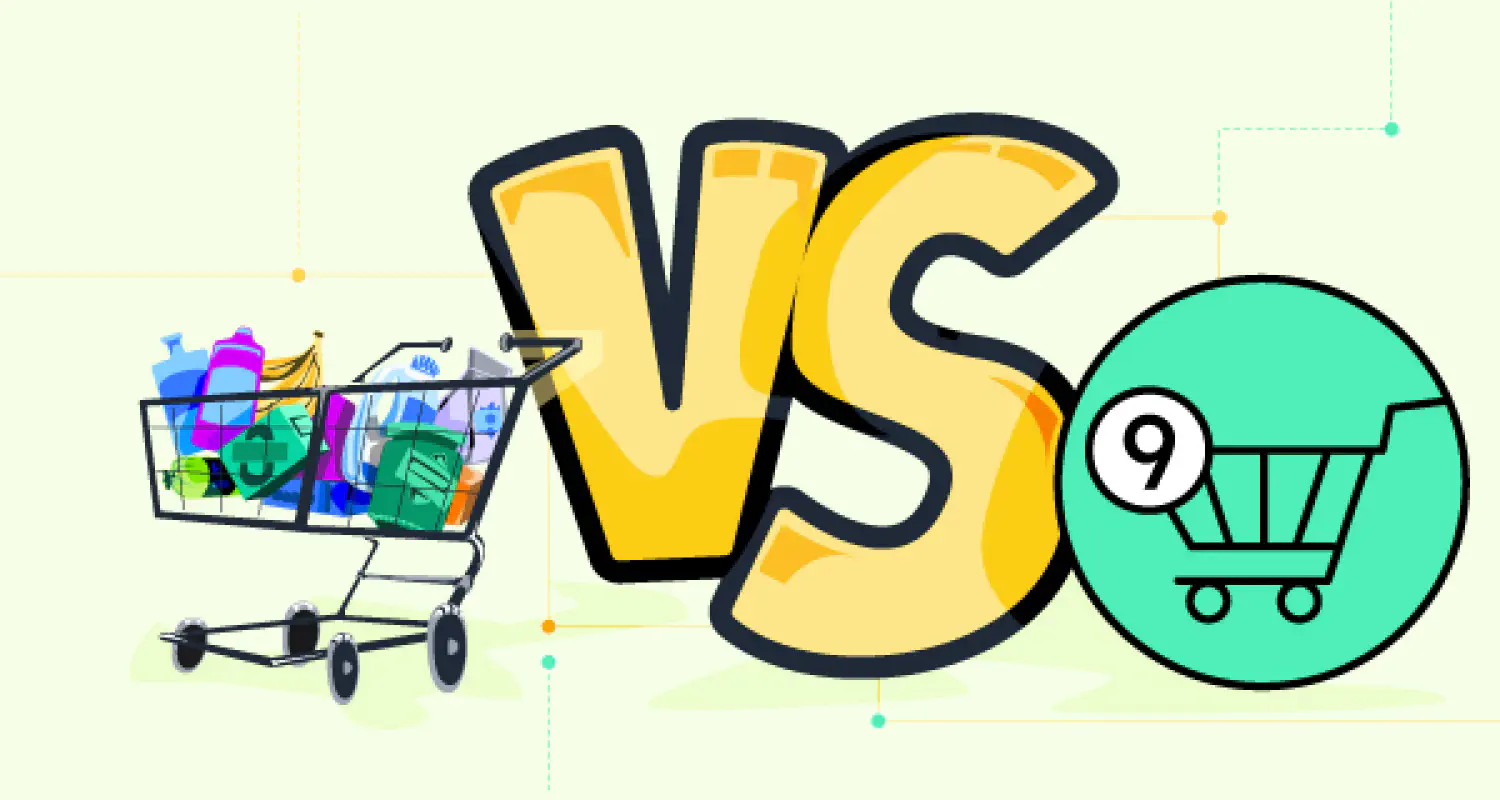
Are you still relying on cold calls or in-person meetings to close deals? Traditional sales channels have their place, but now businesses need to meet customers where they are. That’s why now more than ever businesses are running their entire sales cycle on WhatsApp - the most popular messaging app in the world.
As the people’s favorite app, WhatsApp provides businesses with tools and features to manage customer communications effectively. But, what’s the edge of WhatsApp as a sales channel, and how does it stack up against the more conventional sales channels? Well, that’s what we are here to explore.
In this article, we’ll compare these two approaches head-to-head to find out which one saves your team time and which drives better results. Let’s do it!
Traditional sales channels vs. WhatsApp Business API
Traditional channels, like cold calls, in-person meetings, or retail locations, still play a crucial role in many sales processes. These methods excel in creating personal connections. A handshake, a face-to-face conversation, or a product demonstration can establish trust and loyalty in ways digital interactions sometimes can’t.
However, WhatsApp is growing fast. It’s not just for personal chats anymore. With 2 billion users worldwide, it’s becoming a key tool for sales. The WhatsApp Business app is a handy tool for businesses that have basic needs, but, the app alone can do only so much!
Customer interactions are more complex than a simple purchase. You need tools that can simplify communication while maintaining a personal touch. The WhatsApp Business API, allows you to scale your communication, personalize messaging, automate customer interactions, integrate WhatsApp with other tools, and more.
What are the pros and cons of using WhatsApp Business API for sales?
Businesses that use the API, must connect it to a WhatsApp team inbox. From there, they can manage and monitor all customer interactions. On the platform, agents collaborate and serve your customers, while chatbots handle common customer queries.
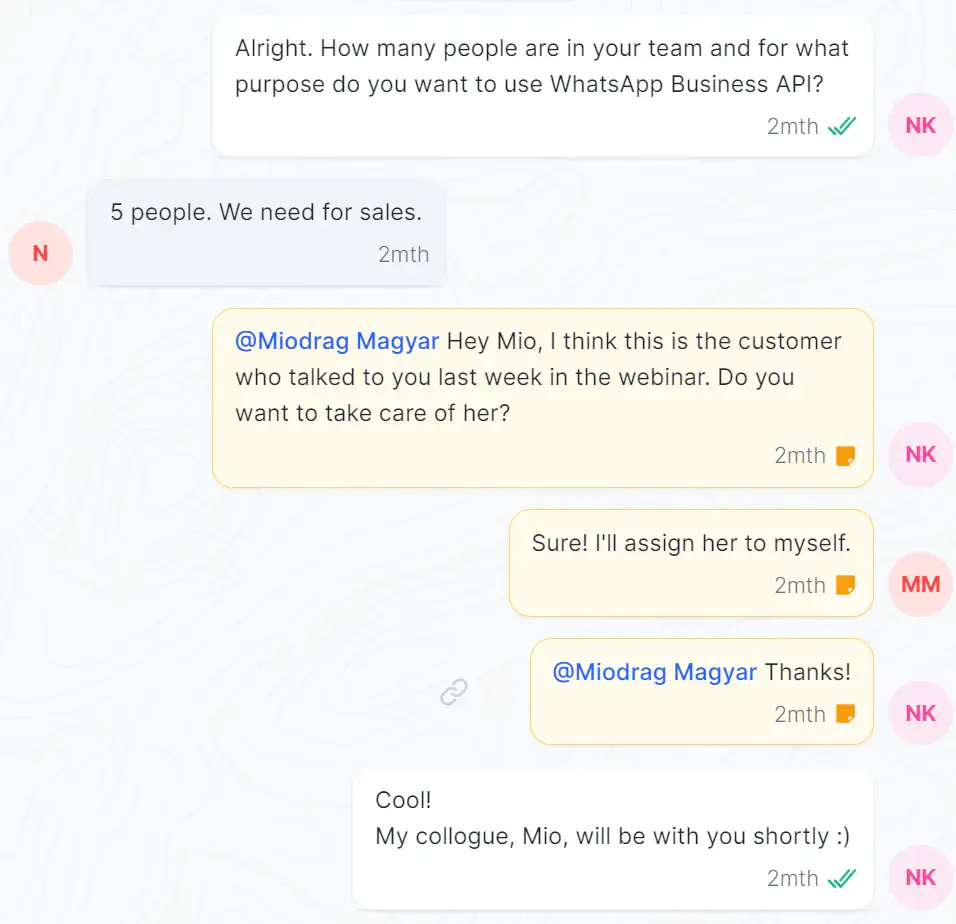
Let’s discuss the advantages and limitations of using the WhatsApp Business API for sales in more detail.
Pros
- The WhatsApp Business API helps you scale your communications. You can handle thousands of sales conversations simultaneously without overwhelming your team.
- With a 98% open rate, WhatsApp messages are almost always read, far surpassing email open rates.
- You can integrate WhatsApp with your CRM system to track every customer interaction and maintain a clear sales pipeline.
- Chatbots help you handle repetitive tasks, follow-ups, and personalized offers without human intervention.
- Automated workflows are ideal for lead qualification, scheduling demos, or sending reminders.
- The API allows you to create message templates that can be personalized and interactive.
Cons
- The API doesn’t come with its own user interface. You’ll need a team inbox to manage your conversations.
- While the API is cost-effective, for some businesses it can be expensive. A gradual approach - starting with the WhatsApp business app and transitioning to the API as your operations grow can help manage costs.
- Following WhatsApp’s strict business messaging policies can be restrictive and require extra effort to comply.
- Users must opt-in to receive your messages.
WhatsApp is still innovating. Recently introduced features like voice calls and groups, accompanied by well-known features like automated messages, chatbots, and deep integrations with CRM systems, make it the go-to channel for sales for many businesses.
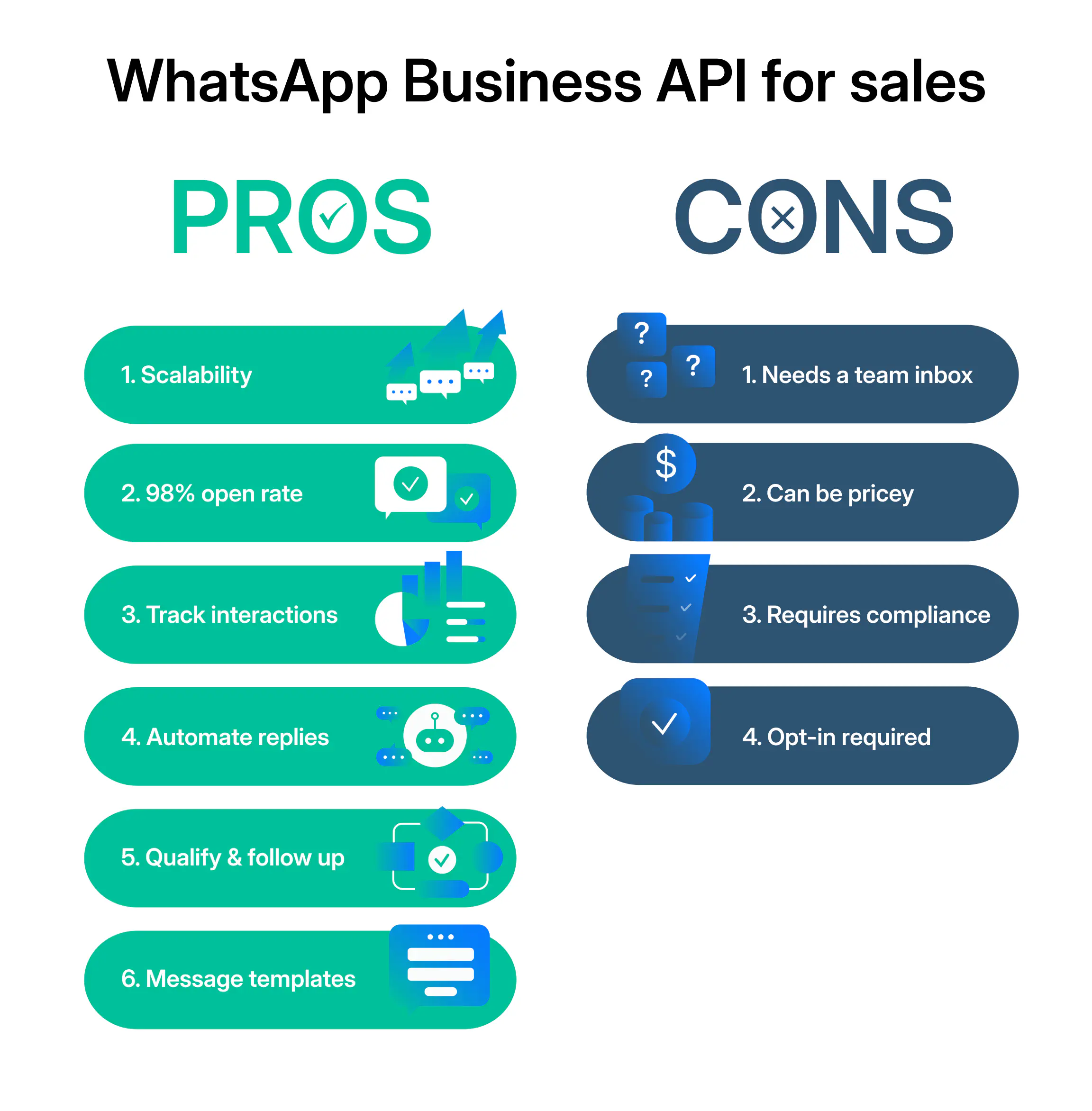
What are the pros and cons of using traditional sales channels?
The usual sales channels with tried-and-true methods like retail locations, direct mail, and telephone sales still remain vital. Let’s explore the areas where traditional channels excel and where they fall behind.
Pros
- In brick-and-mortar stores, customers can touch, feel, or try out products before purchasing.
- Face-to-face interaction in traditional sales allows for personalized service. Salespeople can build relationships with customers, which can drive loyalty.
Cons
- Traditional sales channels are typically confined to a specific geographic location, limiting your potential customer base while causing significant expenses.
- In the age of instant gratification, traditional sales channels can be less convenient. Customers may have to deal with issues like travel time, store hours, and queues.
- Expanding to new regions or markets can be slow and resource-intensive.
- Measuring the success of traditional channels, like print ads or direct mail, can be less precise compared to the detailed analytics available through the WhatsApp Business API.
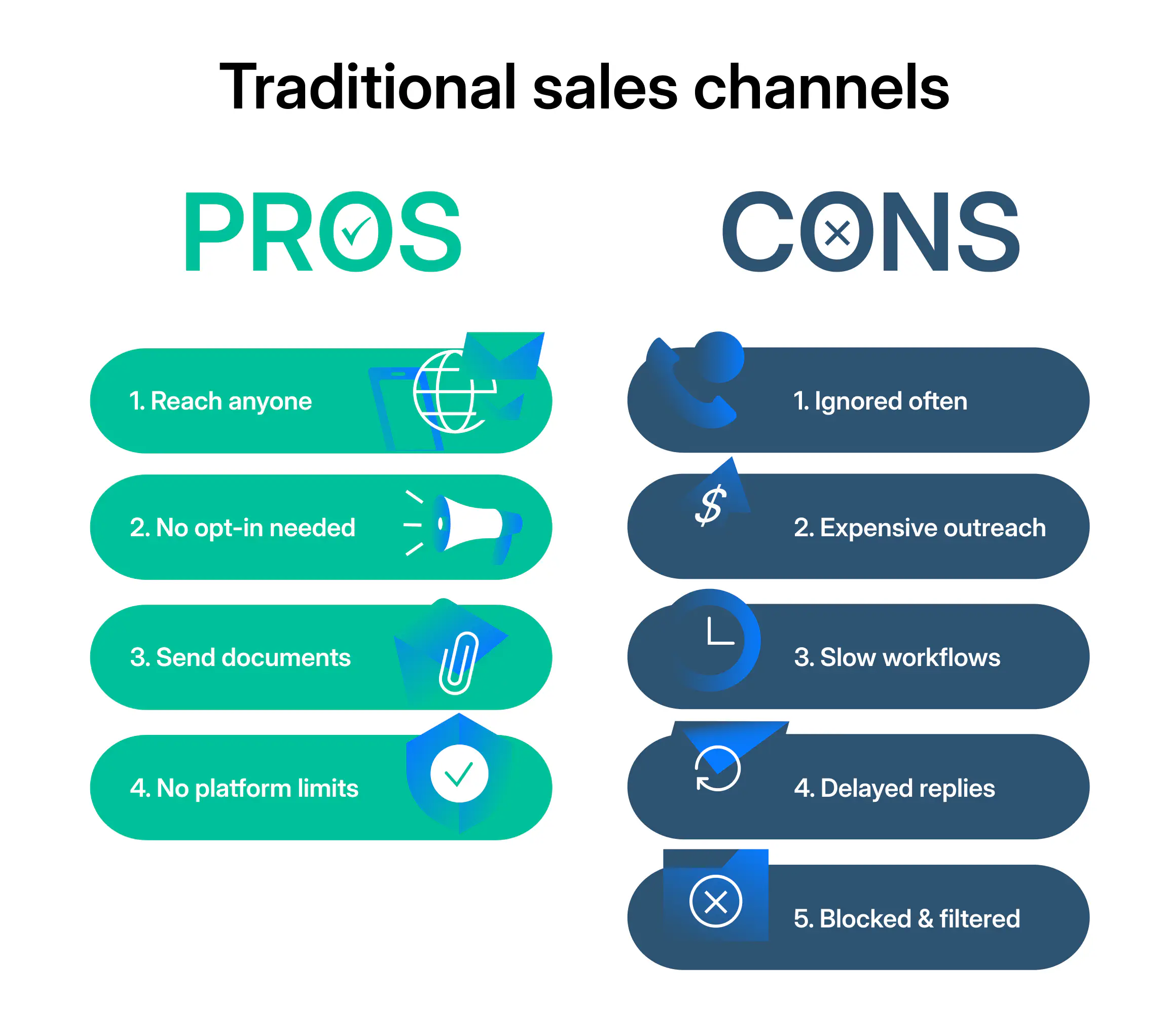
Which channel suits your business better?
Choosing between WhatsApp Business and traditional sales channels depends on factors such as your business type, target audience, budget, and operational needs.
Here’s a comparison to help you decide which channel suits your business better.
| Factor | WhatsApp Business | Traditional sales channels |
|---|---|---|
| Business type & audience | Ideal for online B2B sales. | Great for businesses relying on personal interactions or direct communication. |
| Cost and budget | Low overhead costs. | Phone calls and email are affordable. Can be costly for businesses requiring physical locations. |
| Reach and scalability | Scalable with global reach. | Scalable but needs more staff to handle growth. |
| Customer engagement | High engagement through personalization. | Phone calls and face-to-face interactions offer personal touch. Emails are less interactive. |
| Flexibility and adaptability | Quick adjustments and automation. | Emails are flexible. Phone calls less so. |
| Data collection and analysis | Easy CRM integration and analytics. | Limited tracking. Email metrics focus on opens and clicks. |
| Customer convenience | Instant, on-demand communication. | Emails are flexible. Phone calls require immediate attention. Less convenient if it requires for customers to visit physical locations. |
Final thoughts
The battle between WhatsApp Business and traditional sales boils down to your business’s needs and your customers’ preferences.
There’s no one-size-fits-all approach, and many businesses find a blended strategy to be the most effective. The key lies in understanding your audience and aligning your sales strategy to meet their needs while capitalizing on the strengths of each sales channel.
The future of WhatsApp Business for sales is promising as the platform keeps evolving and innovating. With its expanding set of features, such as advanced automation, chatbots that use AI, and deep CRM integration, WhatsApp is set to impact how businesses interact with customers.
In the end, every sales channel has its place. WhatsApp for sales is an excellent tool for businesses looking for a cost-effective channel with a global reach, while traditional sales channels continue to offer unique advantages in customer experience and service.
Ready to see how we at Rasayel sell our product over WhatsApp? Check out our article here for actionable insights and a behind-the-scenes look at our strategy!
Frequently Asked Questions

Miodrag is a seasoned WhatsApp marketing expert with over 15 years of experience in B2B sales and communication. Specializing in the use of WhatsApp Business API, he helps businesses use WhatsApp’s marketing features to grow their sales and improve customer engagement. As one of the early adopters of WhatsApp Business, Miodrag has a deep understanding of its tools and strategies, making him a trusted authority in the field. His insights have helped many businesses with their communication strategies to achieve measurable results.

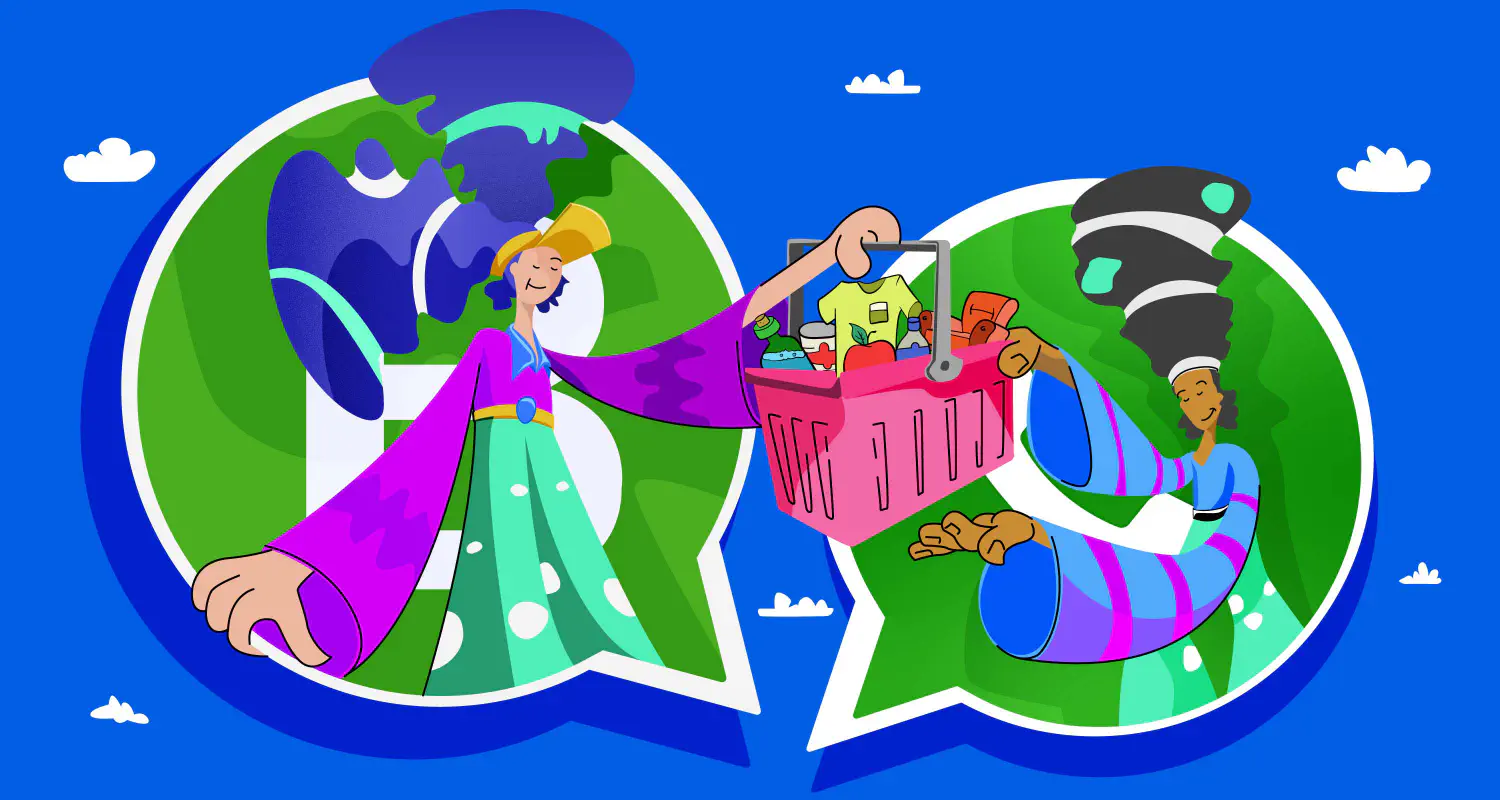

![How to Nurture Leads on WhatsApp [Proven Strategy for 2025]](https://learn.rasayel.io/en/blog/whatsapp-lead-nurturing/cover_hu15784667665195158061.webp)